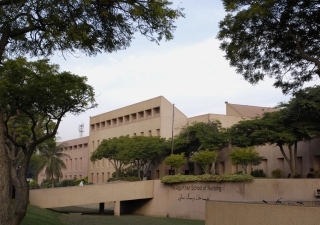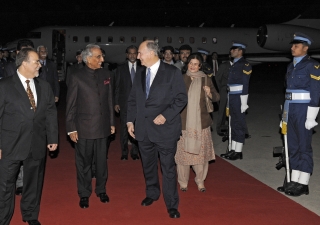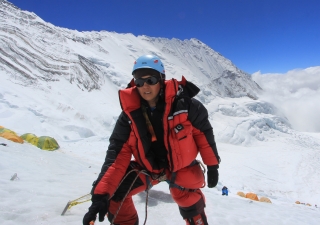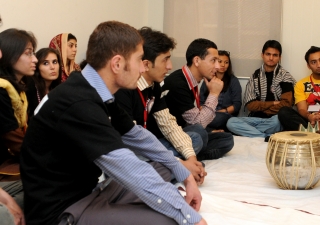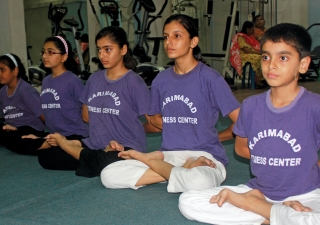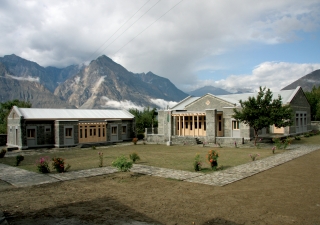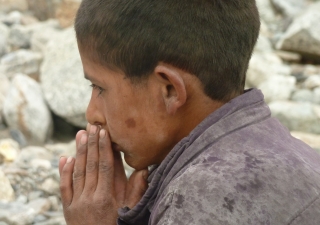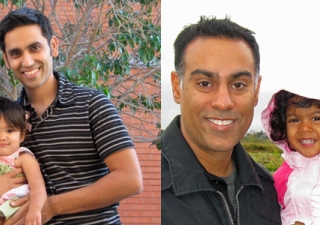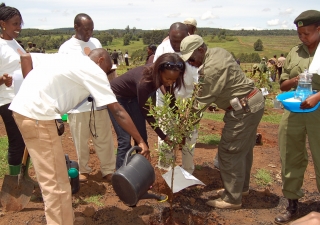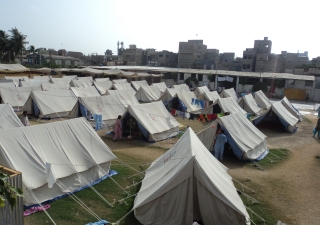What's New
Islamabad, 16 December 2013 – In separate meetings with the President, the Prime Minister, the Advisor to the Prime Minister on National Security and Foreign Affairs and the Finance Minister of Pakistan, Mawlana Hazar Imam received praise for the leadership role taken by the AKDN in the country’s development, and for its effectiveness in improving the quality of life of those whom it reaches.
Three decades is a relatively short period in the history of a university, but the impact that the Aga Khan University has had in its formative years is not to be underestimated. And while the institution may be young, its spirit is far older.
Islamabad, 15 December 2013 – Mawlana Hazar Imam arrived in Islamabad this evening, commencing an official visit to Pakistan. During the visit, Hazar Imam will meet with government officials, attend to AKDN related matters and preside over a convocation of the Aga Khan University.
Samina Baig, the first Ismaili Muslim woman and the first Pakistani female to climb Mount Everest, the world’s highest peak, marked a unique historical achievement as she unfurled the national flag of Pakistan and the Ismaili flag on the summit. She hopes that her achievement will inspire the millions of women in Pakistan so that they too can achieve their dreams.
Young Ismailis from across Pakistan grappled with the challenge of re-imagining their country’s future last year at the National Youth Camp 2012 held in Karachi. Some 80 participants aged 18 – 22 engaged in dialogue about differences and commonality, reflected on how to make positive life choices, and learnt how they might transform their hopes for a better world into reality.
Only a minimal percentage of adults in Pakistan actively participate in any sports, games or exercise to stay fit. Nevertheless, societal changes over the past two decades have resulted in a greater need for active lifestyles and increased health awareness. Through programming, facilities and services, the Aga Khan Youth and Sports Board in Pakistan is helping the Jamat to “leap into fitness”.
Part of a seismically unstable zone that is prone to earthquakes, floods, landslides and droughts, Pakistan's northern region has long been home to a signifiant Ismaili population. Several new purpose-built jamatkhana projects blend traditional building with new disaster-resistant techniques. From design and construction to finished product, the new structures offer a model to uplifit the quality of habitat throughout the region.
In this conclusion of a two-part story, broadcast journalist Faridoun Hemani recounts his experience as part of a team that visited areas stricken by the 2010 Pakistan floods to document the impact of the AKDN Early Relief and Recovery Programme. The team travelled to Gilgit-Baltistan, Khyber Pakhtunkhwa and Sindh, where they listened to local people tell life-changing stories.
For nearly 16 years, Shamim Hassan Shivji placed close to 100 Karachi orphans with couples from around the world. She and a neighbour routinely cared for the orphaned or abandoned infants while seeking out loving homes for them. She never charged for the service – her reward was seeing kids she placed grow up to become well-educated members of society.
Each year, thousands of North Americans adopt orphaned or abandoned children, and make a lifelong commitment to love and care for them. Two Ismaili families share their personal stories of adoption, and journeys they undertook to bring their children home.
Over the last 25 years, AKDN has planted over 100 million trees in Asia and Africa. Many communities already recognise that sustainable agro-forestry provides dividends in the form of food, fuel and fodder, and the emergence of a global carbon market presents new opportunity.
Massive flooding last year in the regions surrounding the Indus River caused devastation, destroying more than 1.4 million acres of cropland and over one million homes. But the resilience of those affected and the compassion and generosity of those providing assistance offers hope and lessons for the times ahead.


